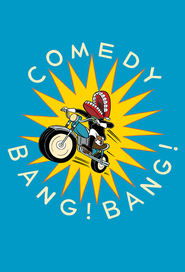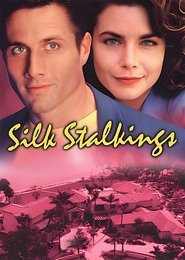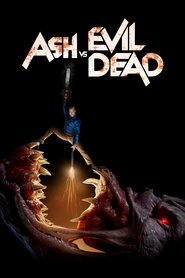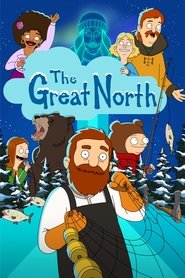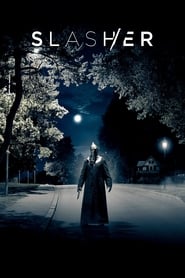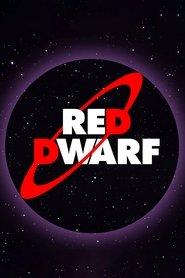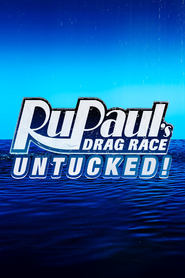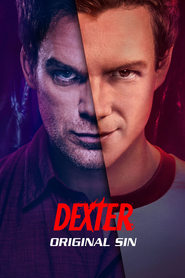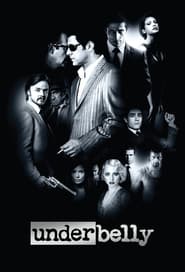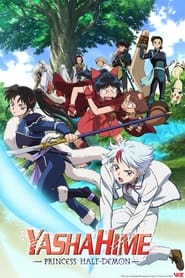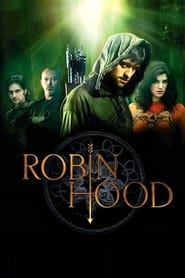Popular Romance TV Series on Free Services - Page 18
-
Comedy Bang! Bang!
2012
Comedy Bang! Bang!
2012
star 6.2Based on Scott Aukerman’s popular podcast of the same name, COMEDY BANG! BANG! cleverly riffs on the well-known format of the late night talk show, infusing celebrity appearances and comedy sketches with a tinge of the surreal. In each episode, Aukerman engages his guests with unfiltered and improvisational lines of questioning, punctuated by banter and beats provided by bandleader, one-man musical mastermind Reggie Watts, to reinvent the traditional celebrity interview. Packed with character cameos, filmic shorts, sketches and games set amongst an off-beat world, COMEDY BANG! BANG! delivers thirty minutes of absurd laugh-loaded fun featuring some of the biggest names in comedy. -
Silk Stalkings
1991
Silk Stalkings
1991
star 6Silk Stalkings is a crime drama television series. The series portrays the daily lives of two detectives who solve sexually-based crimes of passion among the ultra-rich of Palm Beach, Florida. -
Ash vs Evil Dead
2015
Ash vs Evil Dead
2015
star 7.7Bruce Campbell reprises his role as Ash Williams, an aging lothario and chainsaw-handed monster hunter who’s spent the last three decades avoiding maturity, and the terrors of the Evil Dead. But when a Deadite plague threatens to destroy all of mankind, he’s forced to face his demons — both metaphorical and literal. -
Dragon Quest: The Adventure of Dai
2020
star 8Young Dai embarks on an epic journey to become a legendary hero, training with his loyal companions to save the world from the resurrected Demon King. -
The Real Housewives of New York City
2008
star 5.7A fast-paced reality show that follows several incredibly busy and ambitious Manhattan women. Watch as they balance envious social calendars, challenging careers, and motherhood, with the hustle and bustle of the big city all around. -
The Great North
2021
The Great North
2021
star 7Follow the Alaskan adventures of the Tobin family as a single dad does his best to keep his weird bunch of kids close, especially as the artistic dreams of his only daughter lead her away from the family fishing boat and into the glamorous world of the local mall. -
Slasher
2016
Slasher
2016
star 6.7Thirty years ago, in the sleepy community of Waterbury, a killer known as “The Executioner” murdered Sarah Bennett's parents. Now Sarah and her husband Dylan have returned to town, only to find herself the centerpiece in a series of horrifying murders centered around the seven deadly sins. -
Red Dwarf
1988
Red Dwarf
1988
star 8The adventures of the last human alive and his friends, stranded three million years into deep space on the mining ship Red Dwarf. -
RuPaul's Drag Race: Untucked
2010
star 6.1The access-all-areas pass to the drama that you didn't see on the runway—the backstage bitchiness, the catfights, the struggles, the tears and the secrets. See what happens behind the scenes of RuPaul's Drag Race when the queens let their tucks breathe... and let their emotions flow. -
Dexter: Original Sin
2024
Dexter: Original Sin
2024
star 8.2In 1991 Miami, Dexter Morgan transitions from student to avenging serial killer. When his bloodthirsty urges can't be ignored any longer, Dexter must learn to channel his inner darkness. With the guidance of his father, Harry, he adopts a Code designed to help him find and kill people who deserve to be eliminated from society without getting on law enforcements' radar. This is a particular challenge for young Dexter as he begins a forensics internship at the Miami Metro Police Department. -
Ink Master
2012
Ink Master
2012
star 7.8A group of the country's most creative and skilled tattoo artists compete for a hundred thousand dollars and the title of Ink Master. The stakes couldn't be higher with "living canvasses" donating their skin to be permanently marked in this adrenalized competition elimination. -
Sonic X
2003
Sonic X
2003
star 7.6After getting stranded on Earth, Sonic and his friends team up with 12-year-old Chris Thorndyke to collect all the Chaos Emeralds and defeat the evil Dr. Eggman. -
Underbelly
2008
Underbelly
2008
star 6.3Underbelly is an Australian television true crime-drama series, each series is a stand alone story based on real-life events. -
Unsung
2008
Unsung
2008
star 4.7Unsung is an hour-long music documentary program that premiered on TV One on November 27, 2008. It celebrates the lives and careers of artists or groups sharing their triumphs, their tribulations, and their truth. It uncovers the stories behind well-known R&B, gospel, and hip-hop music artists, bands, or groups which were ranked on the Billboard music charts with a string of hits, only to have their career derailed by a major crisis. After four seasons, Unsung won an NAACP Image Award in the "Outstanding Information Series or Special" category. Others nominated in this category for 2011 were Anderson Cooper 360° and Washington Watch with Roland Martin. And as of 2018, the series has garnered six NAACP Image Awards. -
Yashahime: Princess Half-Demon
2020
star 8.3In feudal Japan, half-demon twins Towa and Setsuna are separated from each other during a forest fire. While desperately searching for her younger sister, Towa wanders into a mysterious tunnel that sends her into present-day Japan, where she is found and raised by Kagome Higurashi’s brother, Sota, and his family. Ten years later, the tunnel that connects the two eras has reopened, allowing Towa to be reunited with Setsuna, who is now a demon slayer working for Kohaku. But to Towa’s shock, Setsuna appears to have lost all memories of her older sister -
Robin Hood
2006
Robin Hood
2006
star 6.8An updated series following the life of Robin Hood and his Merry Men in Sherwood forest. Together they steal from the rich and give to the poor - all the while avoiding their enemies Sir Guy of Gisborne and the Sheriff of Nottingham. -
Kenichi: The Mightiest Disciple
2006
star 8.4Yeah, Kenichi’s a total wimp. He’s always getting picked on and doesn’t have a lot of friends to stick up for him. The guy needs motivation if he hopes to graduate in one piece. Well, Miu’s the perfect motivation. She’s hot, she accepts him, and she just so happens to live at a dojo with six martial arts masters. You could say fate has led Kenichi to their door, or you could say he was just following the hottie. Either way, he’s about to get whipped into serious shape. If he can survive some hard-core training, he might survive another day at school. He might even score with Miu. Yeah, you could call Kenichi a wimp. But let’s go with underdog instead. -
Doc
2025
Doc
2025
star 7.4Dr. Amy Larsen must navigate an unfamiliar world after a brain injury erases the last eight years of her life. She can rely only on her estranged 17-year-old daughter, whom she remembers as a 9-year-old, and a handful of devoted friends, as she struggles to continue practicing medicine, despite having lost nearly a decade of knowledge and experience. -
Cloudy with a Chance of Meatballs
2017
star 5.7The series is a prequel, featuring the high school years of Flint Lockwood, the eccentric young scientist in the films. In his adventures, he will be joined by Sam Sparks, a new girl in town and the school's "wannabe" reporter, along with Flint's dad Tim, Steve the Monkey, Manny as the head of the school's audiovisual club, Earl as a school gym teacher, Brent as a baby wear model, and Mayor Shelbourne, who wins every election on the pro-sardine platform. -
2.5 Dimensional Seduction
2024
star 8.3When cosplayer Ririsa joins Okumura's manga club, the line between 2D and 3D blurs when she asks him to be her photographer.
 Netflix
Netflix
 Amazon Prime Video
Amazon Prime Video
 Apple iTunes
Apple iTunes
 Apple TV Plus
Apple TV Plus
 Disney Plus
Disney Plus
 Google Play Movies
Google Play Movies
 Paramount Plus
Paramount Plus
 Hulu
Hulu
 HBO Max
HBO Max
 YouTube
YouTube
 fuboTV
fuboTV
 Peacock
Peacock
 Peacock Premium
Peacock Premium
 Amazon Video
Amazon Video
 The Roku Channel
The Roku Channel
 AMC+
AMC+
 Kocowa
Kocowa
 Hoopla
Hoopla
 The CW
The CW
 Vudu
Vudu
 Starz
Starz
 Showtime
Showtime
 PBS
PBS
 Pantaflix
Pantaflix
 FXNow
FXNow
 Tubi TV
Tubi TV
 Kanopy
Kanopy
 Comedy Central
Comedy Central
 Crunchyroll
Crunchyroll
 Microsoft Store
Microsoft Store
 Redbox
Redbox
 Sun Nxt
Sun Nxt
 ABC
ABC
 DIRECTV
DIRECTV
 Crackle
Crackle
 Fandor
Fandor
 Plex
Plex
